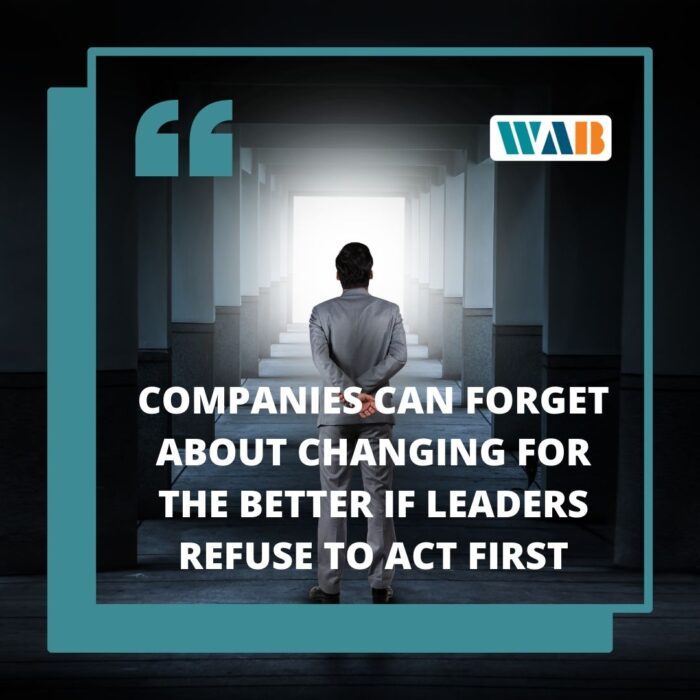It doesn’t matter how good your company is. If leadership isn’t pulling its weight, it’s time to make a change.
A company is only as good as its leadership. That’s a simple fact of business, but it has profound implications for the way we all work and live together every day. If leaders aren’t up to the job, if they’re not acting with vision or courage or commitment—then no amount of organisational change can save them from failure. Companies that have been stuck in a rut for years are always waiting on their leaders to pull them out: “If only our CEO would listen!” But here’s the thing about CEOs: They don’t get paid enough for any one person to be allowed to screw things up any more than necessary! We’re all going through these changes together as individuals and companies alike; let’s get this done already! Here are three ways that ineffective leaders can stop holding us back from progress:
A company is only as good as its leadership.
In a recent Forbes article, “How to Create an Innovation Culture,” author David Brussin says that “a company’s culture is only as good as its leadership.” He’s right on the mark. Leadership is the most important factor in the change, success and failure—and it’s also responsible for innovation and culture. Without leadership, nothing happens at all; you’re left with nothing but talk about changing for the better with no action behind it.
Organization commitment to change is the ultimate arbiter of the change.
Organization commitment to change is the ultimate arbiter of the change. It is the reason why change happens, and it’s also the reason why change doesn’t happen. When an organization has high levels of organization commitment to a new strategy, then it will be much more likely to succeed – even if there are obstacles along the way (like resistance). On the other hand, when an organization has low levels of organization commitment towards implementing a new strategy or process; then it may not even get off the ground because people won’t say yes when asked if they are willing to help implement this new idea/process/system etc.
The key question becomes: How do you build organisational commitment?
Resistance can be combated with vision and a new, compelling narrative.
In order to get buy-in from the people who need it, a new narrative is needed. A narrative is defined as “a story that explains a situation or series of events.”
The story you tell about your company’s change needs to have three qualities: it must be compelling, truthful and consistent with reality. Compelling means the story will convince your audience that change is necessary; truthful means there are no hidden agendas; and consistent with reality means that you can prove what you’re saying will work (and isn’t just magical thinking).
The most effective leaders are the ones who lead by example.
The most effective leaders are the ones who lead by example. They show their people that they’re willing to change, even if it means making mistakes and failing. When you make an effort to improve your own behaviour, you send a message that change is possible—and it gives others permission to do so as well.
The best leaders know this is not always easy or comfortable; but they accept it because they realize that when you refuse to act first, others won’t either—and your organization will never be able to move forward and transform itself into something better than what it currently is.
It’s time to stop waiting on ineffective leaders to fix things, and just take it upon yourself instead.
I know that you’re waiting for someone else to fix things. I know you want someone else to make the first move because then it feels less like your responsibility as an employee. And I know that you want someone else to make the first decision so that if it doesn’t work out well, they take all of the blame or responsibility for their actions.
But here’s what happens when we wait on others: nothing happens. And by nothing happening, I mean everything gets worse. There are no improvements made; there is no progress gained, and there is no success achieved. Instead of waiting for these ineffective leaders that refuse to act first—and instead focusing on your own improvement—take action today and change yourself into a better person than yesterday!

Conclusion
The bottom line is that change is hard. It takes a lot of effort to be successful, and it’s even more difficult when you’re going against the grain. But if you want to lead a company into better times, then you have to make sure that your actions match your words. You need to set the right example for others by showing them how things should work—and if they don’t like it, then they need to leave!
About the Author:
Terence Chiew is the Managing Director of Peet Asia and a Performance Consultant. He works with team leaders to develop high-performing teams and achieve organizational success through a variety of interventions such as personality and values assessments, performance consulting, leadership and management training, team building, and team alignment.
He is effectively bilingual (English and Mandarin) and a regular guest speaker on Singapore radio stations such as Jia FM 88.3, LIVE FM 93.8, CAPITAL FM 95.8, NOW FM 93.8, MONEY FM 89.3 and LOVE FM97.2 (Check out these recordings). He is the author of the book Most Valuable Professional: What Every Employee Ought to Know About Staying Employable and the winner of the Marketing Institute of Singapore’s ‘Best Personal Brand Award 2017’.
In terms of professional credentials, Terence is a Marshall Goldsmith Certified Executive Coach. Stakeholder Centered Coaching, Certified Team Coach by Marshall Goldsmith Stakeholder Centered Coaching, Certified Leadership Coach by Global Coach Group, Certified Team Coach by Global Coach Group, Certified Consultant for the Workplace Big Five Personality ProfileTM 4.0 Tool by Paradigm Personality Labs, LLC. (USA), Workplace Value ProfileTM 3.0 by Paradigm Personality Labs, LLC. Terence has a Specialist Diploma in Adult Learning and Teaching (SDALT), the Cambridge International Diploma for Teachers and Trainers (CIDTT), and the WSQ Advanced Certificate in Training and Assessment (ACTA). He is currently studying for an MSc in Marketing at the University of Salford (U.K.)






